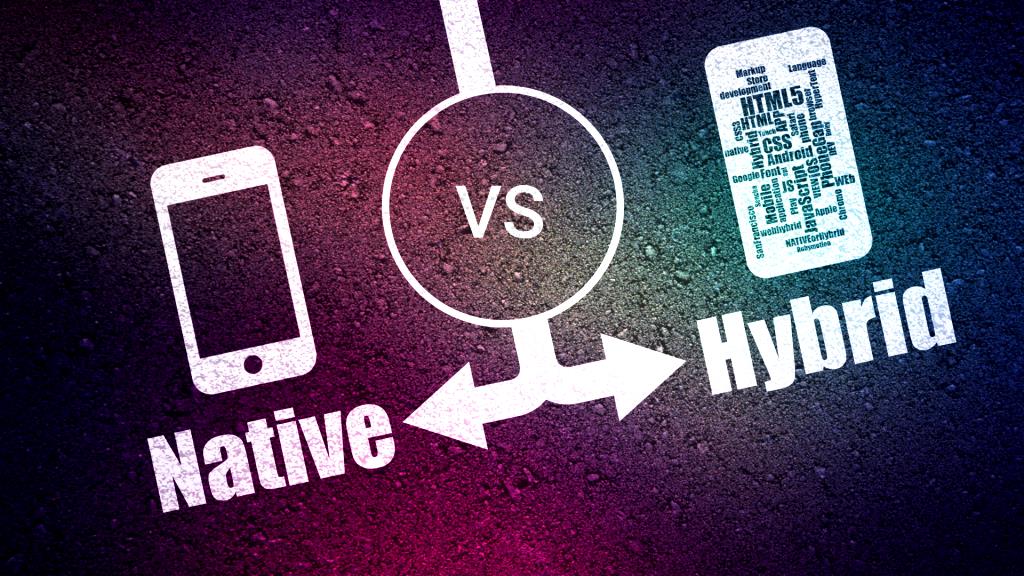App development has many riddles that need to be solved from the beginning of app development to this date. Still, unfortunately, many developers are unable to find the answers to them. We are here to try to solve some of the factors of this puzzle so that we can get near to the solution. Without any further ado, let’s get started!
Difference between hybrid apps and native apps:
Hybrid apps are developed by using the basic web technologies in the
development process. These web technologies include HTML5, JavaScript,
and CSS, which are mixed with some of the native elements to make them
independent of the platforms. These apps can operate on both Android
devices as well as Mac devices.
On the flip card, native apps are
developed specifically for a specific platform, and these apps can’t
run on the platform other than that they are made for. For example, some
Android apps in Java, and they can’t run on iOS devices, while the
Apple apps are developed in Apple’s swift.

Why choose native app development?
- Certain factors urge us to choose native app development. Those factors are as follows:
- Native code is speedy than the HTML code so, pictorial applications,
high definition games, animations work better as native apps.
- Native apps don’t have to face dependencies on the open-source platforms and libraries, including Cordova and Ionic.
- Native SDKs grant access to the device features with no complex native plug-ins.
Cons:
- Each platform needs individual development effort, and it increases the time of development.
- Separate release cycle and updates of each platform contribute to the
time-consumption of development, and the cost is also affected by that.
- The single code base of every platform makes it much challenging to release a single feature on different platforms.
- Developers need to learn different skills to develop and maintain the
same application on different platforms. This factor also affects the
cost of development.
Perks of hybrid app development:
- There is no need to have multiple code bases for various
platforms. A single code base goes with all the platforms. It reduces
the time consumption of development.
- A single development team can
develop the app for multiple platforms
. It means there is no need to hire various teams for various platforms.
- Hybrid apps involve web techniques so we can run them on the web also.
- Hybrid apps are not affected by the change of platforms or devices. They work with goodness and consistency.

Drawbacks of hybrid apps:
- The hybrid approach for 3D, HD games, animations, and other performance-based apps, is not well.
- Sometimes, device features are not available as native plug-ins. In
such cases, hybrid app developers can write their plug-ins, which adds
complexity.
- Hybrid apps have dependencies on open-source libraries that make them flawsome.
Ending note:
Both native app development and hybrid app development have their pros and cons. In some factors, native app development leads, and in some other factors, hybrid app development wins the game. The decision to choose one of them depends on the use case, environment of the app, priority of the organization, and goals.
Source: https://www.dotnek.com/Blog/Apps/hybrid-mobile-app-development-vs-native-app-d
Comments
Post a Comment